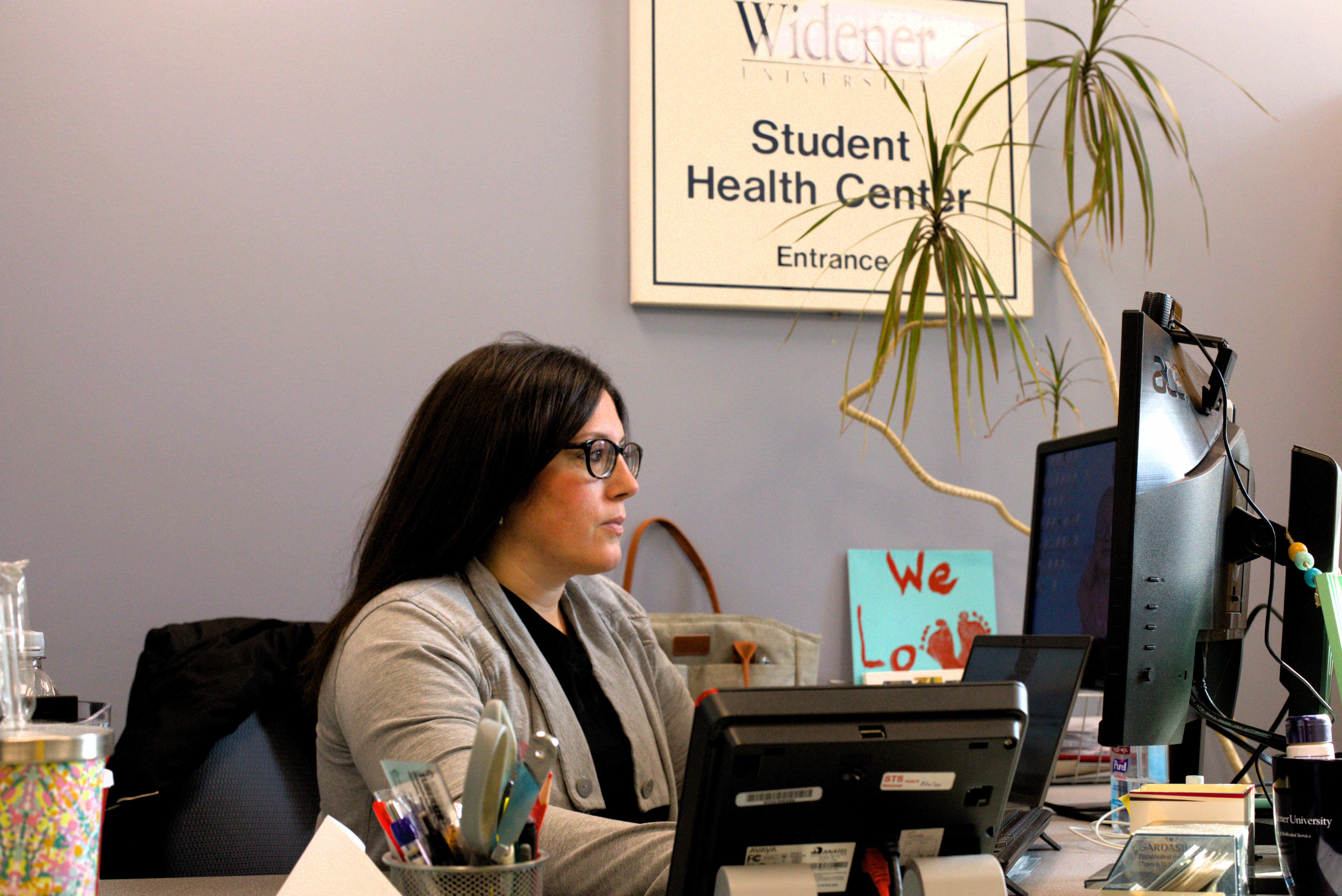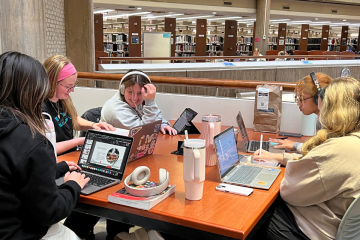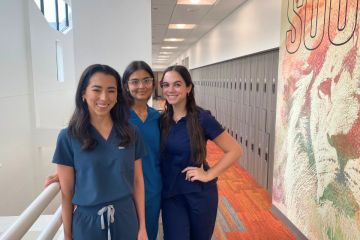Widener Nursing Programs Empower Future Nurse Leaders

Widener’s School of Nursing prepares the next generation of nurses to lead in any setting from patient care to research. At the graduate level, the school offers a series of nursing leadership programs that position students to advance in their careers as well as become leaders in clinical and health system settings.
For Lauren Thomas, enrolling in the master's in executive nurse leadership program was an opportunity to learn how to implement meaningful improvements in health care delivery.
“Quality improvement and policies and procedures have been something that has become more or less a passion of mine. Once you start working in nursing, you see that there's always room for improvement in health care,” said Thomas.
A veteran nurse of more than 15 years, Thomas was attracted to the program’s unique interdisciplinary curriculum which includes classes in the School of Business Administration that teach the technical data and process management skills needed to improve health outcomes for patients and populations.
 “You're able to focus on both nursing leadership and take classes in the School of Business to learn about important business aspects,” said Thomas, who added that she was able to apply course lessons directly to her work as a nurse in the university’s Student Health Services.
“You're able to focus on both nursing leadership and take classes in the School of Business to learn about important business aspects,” said Thomas, who added that she was able to apply course lessons directly to her work as a nurse in the university’s Student Health Services.
In addition to the blended curriculum, the program is thoughtfully designed to meet students, like Thomas, where they are to help them succeed academically without compromising their personal and professional responsibilities.
“One of the nice things about the program is you can do your practicum hours at your place of work, so I've been able to perform my practicum hours here in Student Health Services at Widener,” said Thomas. “Being able to do it here at work, I think is a great opportunity.”
Similarly, as a full-time working parent, the program has given Thomas the flexibility and support that she needs to succeed on her own timeline.
“I'm still able to work full time and I am able to get home in time to my younger kids, so [the program] is allowing me to still have both of that. I’ve been able to take online, hybrid, or in-person classes basically at my own pace,” said Thomas, who will graduate from the program in May 2024.
In addition to the school’s offering of nurse leadership graduate programs, which also includes doctorate and post-master's certificate pathways, students are gaining hands-on leadership experiences at the undergraduate level as well.
Just ask Lauren McCarthy ’25.
The junior nursing student has been taking advantage of the multiple opportunities to hone her leadership skills both in and out of the classroom. McCarthy is a member of the Widener University Student Nurses’ Association (WUSNA), a local chapter of the Student Nurses’ Association of Pennsylvania (SNAP).
After serving in the combined secretary-treasurer role at SNAP, McCarthy was elected president of the state-wide organization in the fall 2023 for a one-year term. McCarthy credits Widener’s nursing program for her drive and leadership skills.
“I knew I wanted to climb up the leadership ladder in that organization. That was the next step for me, moving up to president, I felt like I was the person to do it,” said McCarthy, who hopes to work in pediatric oncology after graduation.
Membership in organizations such as WUSNA and SNAP connects students, like McCarthy, with meaningful non-clinical experiences and gives them access to potential employers, future colleagues, and mentors in the industry.
These experiences, according to McCarthy, “help build your leadership capabilities because you get more exposure.”
The overall experience, both in WUSNA and SNAP, has taught McCarthy critical problem-solving and communication skills that translate seamlessly to patient care.
“It taught me the importance of communication; being able to walk into a patient’s room, talk about their care and educate them. I’ve been able to use that in my clinicals and at work,” said McCarthy.




